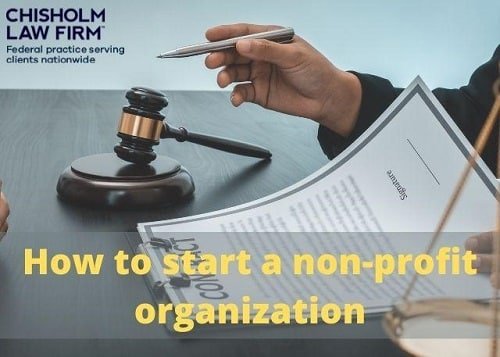Table of Contents
Starting a non-profit organization can be a daunting task. There are many legal issues and requirements that must be met to make your non-profit official. In this blog post, we will walk you through the process of how to start a non profit organization step by step and provide tips. So, let’s get started!

What is a non-profit organization?
A non-profit is “an organization that uses its surplus revenues to achieve its goals rather than distributing them as profit or dividends.
Legal documentation:
The first step in starting a non-profit is to gather the legal documentation required. For this:
- You’ll need to create an Articles of Incorporation (or Certificate of Formation, if you’re forming an LLC). This document will establish your organization’s name, purpose, and registration with the state.
- You’ll need to draft bylaws for your organization. Bylaws delineate the rules and regulations for how your non-profit will be governed.
- They should include provisions for things like membership, meetings, and elections.
- Once you have these two key documents in place, you can then file for tax-exempt status with the IRS.
- You must submit IRS Form 1023, Application for Recognition of Exemption Under 501(c)(3) of the Internal Revenue Code.
How to get started?
While this list may seem daunting, we will walk you through each step in more detail below. To start a non-profit, you will need to do the following:
1. Choose a name for your organization.
When choosing a name for your non-profit, you’ll want to make sure it is not already taken and complies with state regulations. You should also choose a name that will be easily remembered and recognizable.
2. File the necessary legal paperwork with your state government.
To officially start your non-profit, you will need to file the proper legal paperwork with your state government. This usually includes filing articles of incorporation and applying for tax-exempt status. To file the Articles of Incorporation, you will need to know the following information:
- The name of your non-profit
- The purpose of your non-profit
- The name and address of your registered agent
- The name and address of your board of directors
- The date of your incorporation
- The duration of your non-profit (if it is not perpetual)
3. Apply for tax-exempt status with the IRS.
To be exempt from paying taxes, you will need to apply for and obtain tax-exempt status from the IRS. This process can be complicated, so it is important to consult with an accountant or attorney before starting the application. To apply,
You must submit IRS Form 1023, Application for Recognition of Exemption Under 501(c)(3) of the Internal Revenue Code. These forms can be found on the IRS website. You will also need to include a copy of your Articles of Incorporation, bylaws, and a business plan with your application.
4. Create a board of directors and bylaws.
Once you have filed the legal paperwork, you will need to create a board of directors and bylaws for your organization. Your board of directors is responsible for governing your non-profit and making decisions on its behalf.
The board should be composed of individuals passionate about your mission and who have the skills and experience to help further your cause. The bylaws outline the rules and regulations that the organization must follow.
To create a board of directors, you will need to:
- Choose an initial group of directors
- Create bylaws that outline the roles and responsibilities of the board
- Elect officers of the board (such as a president, vice president, secretary, and treasurer)
5. Register with your state’s Attorney General’s office (if required).
Some states require non-profit organizations to register with the Attorney General’s office before soliciting donations. You can find out if your state has this requirement by visiting the National Association of State Charity Officials website.
6. Start raising funds.
Now that your non-profit is legal and official, you can start raising funds to support your cause. It’s time to start raising money for your non-profit. There are several ways to do this, including conducting fundraisers, applying for grants, and soliciting donations.
No matter how you choose to raise funds, keep good records of all donations and expenditures. This will help you stay compliant with the law and maintain your tax-exempt status.
Conclusion:
Starting a non-profit organization can be a complex and daunting task. However, by following the steps outlined above, you can ensure that your organization is legal and compliant with all state and federal regulations. Once your non-profit is up and running, you can start raising funds to support your cause. Non-profit organizations can be a great way to make a difference in your community.